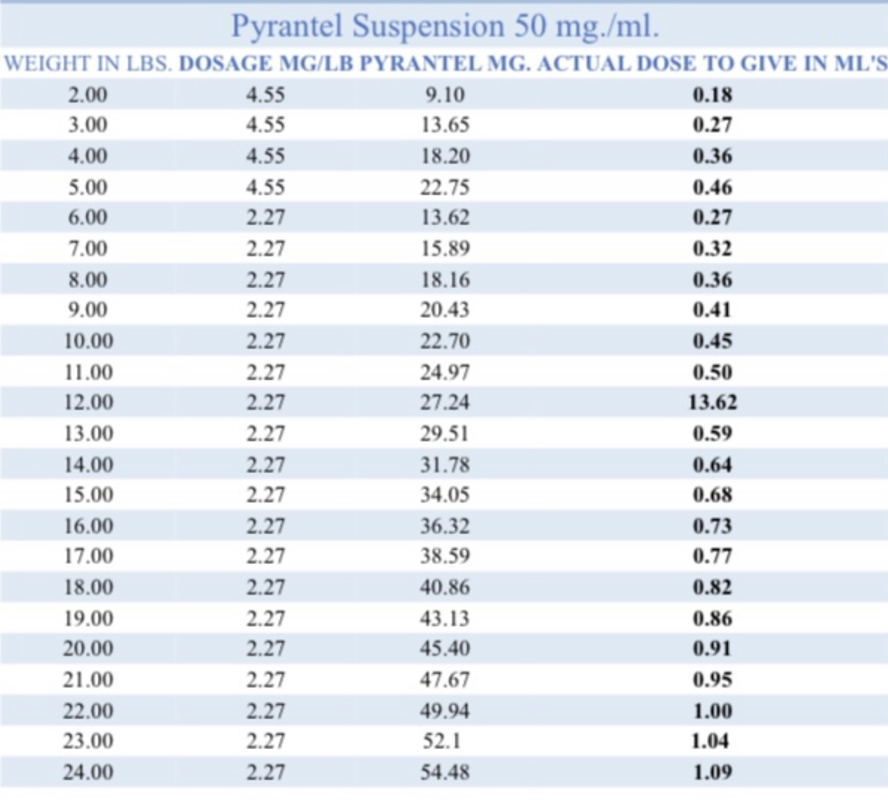Have you ever wondered about the right dosage for Nemex 2 for puppies? Well, let me tell you, it’s always best to consult with your veterinarian before giving any medication to your fur baby. However, it’s good to know that Nemex 2 is a popular medication that’s often prescribed as a dewormer for puppies. Whether it’s hookworms or roundworms that your puppy has, Nemex 2 can help eradicate these parasites.
What is Nemex 2?
Nemex 2 is a medication that’s commonly used to treat and prevent dog worms. It’s effective against various types of infections, including hookworms and roundworms, which are two of the most common types of parasitic infections in dogs. It comes in a liquid form and contains the active ingredient Pyrantel Pamoate, which is a safe and effective drug used by veterinarians for decades.
 What’s the right dosage for Nemex 2 for puppies?
What’s the right dosage for Nemex 2 for puppies?
As we’ve already mentioned, consulting with your veterinarian is always the best option when it comes to dosing your puppy. However, the following is a general guideline on Nemex 2 dosage for puppies:
- Puppies weighing 2 to 10 pounds should be given 1/2 teaspoon (2.5 ml) of Nemex 2 liquid.
- Puppies weighing 11 to 25 pounds should be given 1 teaspoon (5 ml) of Nemex 2 liquid.
- Puppies weighing 26 to 50 pounds should be given 2 teaspoons (10 ml) of Nemex 2 liquid.
- Puppies weighing over 50 pounds should be given 3 teaspoons (15 ml) of Nemex 2 liquid.
If your puppy weighs a bit more or less than the weight categories mentioned above, your veterinarian may adjust the dosage accordingly. It’s important to follow your vet’s instructions and not to overdose your pup. Overdosing can lead to unwanted side effects, so always measure the dose carefully.
How often should I give Nemex 2 to my puppy?
The frequency of giving Nemex 2 to your puppy depends on their age. Puppies that are younger than 6 weeks old should be given Nemex 2 every two weeks until they reach 12 weeks of age. Usually, puppies should be dewormed every month until they reach 6 months of age. Once your puppy has reached the age of 6 months, it’s recommended that they be dewormed at least every three months.
It’s important to take your puppy for regular check-ups to ensure that they’re healthy and to catch any potential health problems early on. Your veterinarian can give you a schedule for deworming and other recommended preventative measures that can help keep your puppy healthy and parasite-free.
What are the side effects of Nemex 2?
Nemex 2 is generally safe when used as directed, but like all medications, it can cause side effects. The most common side effect of Nemex 2 is vomiting. This usually occurs within 15 minutes of giving the medication. In some cases, puppies can experience diarrhea or loss of appetite. These side effects are usually mild and go away on their own.
If your puppy experiences severe side effects, such as difficulty breathing, seizures, or allergic reactions, you should contact your veterinarian immediately.
What else can I do to prevent worms in my puppy?
Preventing worms in your puppy is essential for their health and well-being. Here are a few tips to help you keep your puppy worm-free:
- Regular deworming: As already mentioned, regular deworming is essential for keeping your puppy free of parasites and healthy.
- Clean up after your puppy: Pick up your puppy’s poop regularly, and dispose of it properly. Worm eggs can survive for a long time in the soil, so keeping your yard and surroundings clean is crucial for parasite control.
- Keep your puppy away from stray animals: Stray animals can be carriers of parasites, so it’s best to keep your puppy away from them.
- Wash your hands: Good hygiene is essential when it comes to preventing the spread of parasites. Always wash your hands after handling your puppy or their feces.
In conclusion, Nemex 2 is a safe and effective deworming medication for puppies. However, it’s always best to consult with your veterinarian before giving any medication to your puppy. By following your vet’s instructions and implementing preventative measures, you can help keep your puppy healthy and happy.